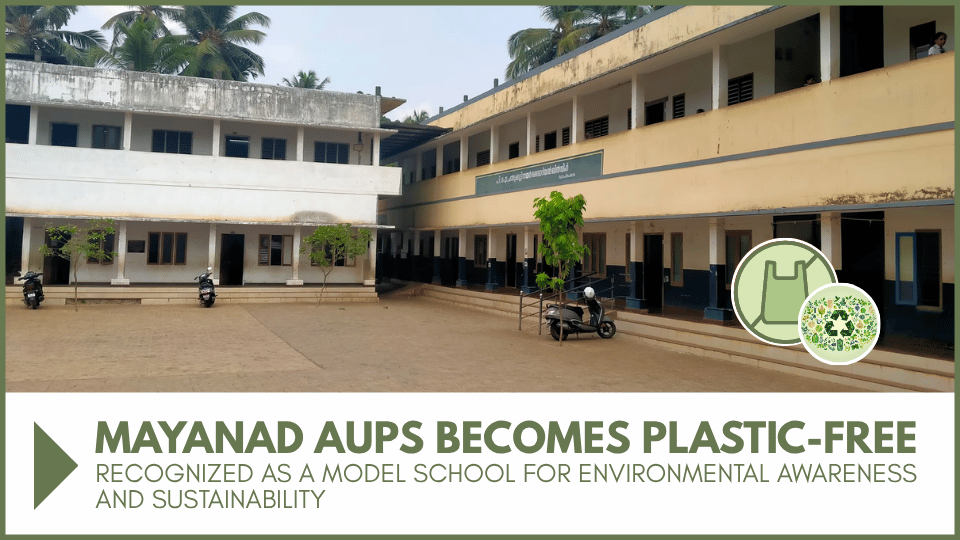Mayanad AUPS in Kozhikode Achieves Plastic-free Campus Status

Kozhikode:
Mayanad AUPS (Aided Upper Primary School) in Kozhikode has emerged as a role model for educational institutions by completely eliminating plastic from its campus. The school, which falls under the Pantheerankavu sub-district, is now being recognized as a model school for environmental awareness and sustainability.
The initiative, led by Headmaster K. Anas, was inspired by the vision of creating a safe and clean learning environment. More than 400 students actively participated in transforming their school into a plastic-free zone.
“Our goal was to teach children the importance of sustainable living through real action, not just lessons,” said Headmaster K. Anas.
Under the program, plastic bottles, covers, and disposable materials were replaced with eco-friendly alternatives like steel containers, glass bottles, and cloth bags. The school’s Eco Club and Nature Club organized awareness campaigns, waste segregation drives, and clean-up programs to support the mission.
The initiative received strong backing from parents, alumni, and the local community. Through consistent effort, the school achieved complete elimination of plastic use, inspiring similar efforts in nearby institutions.
In recognition of these achievements, Mayanad AUPS was officially declared a model eco-friendly school in Kozhikode district.
Building on its success, the school plans to expand its green initiatives in 2026, introducing organic farming projects, water conservation systems, and renewable energy adoption.
Officials noted that the school’s transformation highlights the growing role of educational institutions in promoting climate awareness and sustainable development among children.
Which school became plastic-free in Kozhikode?
Mayanad AUPS (Aided Upper Primary School) in Pantheerankavu sub-district, Kozhikode, has become a plastic-free campus.
How did the school achieve this status?
The school replaced all plastic materials with eco-friendly alternatives like steel, glass, and cloth, involving students, parents, and teachers in the initiative.
Who led the plastic-free mission?
The campaign was led by Headmaster K. Anas, with active participation from the school’s Eco Club and Nature Club.
What are the future plans of the school?
The school plans to start organic farming, water conservation projects, and renewable energy programs.
Why is this initiative significant?
It demonstrates how schools can lead sustainability efforts and instill eco-conscious habits in students at a young age.
